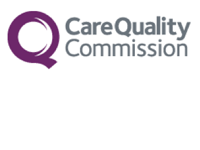
Care providers will face slimmed down inspections under reforms to the Care Quality Commission’s regulation regime.
The changes, outlined in a report to this week’s CQC board meeting, follow a review of its regulatory model. The plans include:
• Inspecting providers against a limited number of the 16 essential standards in planned inspections.
• Assuming providers are compliant unless they can find evidence to the contrary.
• Scrapping improvement actions placed on providers and designating them either compliant or non-compliant with standards.
• Reducing the portfolios of frontline inspectors by taking on more staff.
The CQC is currently piloting inspecting providers against only some of its 16 quality outcomes and will evaluate the system in September when the pilots are complete. “These scheduled inspections should enable inspectors to more quickly identify non-compliance through visiting more locations and more direct observation of people’s experience of care,” the report said.
Action to shift the burden of proof for compliance and reduce staff portfolios has already been taken, the report said.
The changes were welcomed by care provider leaders.
“The current system was never intended to mean that inspections would be against all the standards but that’s what the CQC have done anyway,” said Des Kelly, executive director of the National Care Forum. “This proposed system is more meaningful because its gives inspectors a chance to understand those selected outcomes in more detail.”
Martin Green, chief executive of the English Community Care Association, said the changes would lead to the CQC being more effective in finding failing providers. He said: “If you do one inspection and find problems in one area there are often problems in other areas.”
Kelly added that assuming providers were compliant fitted with society’s idea of natural justice.
Green also supported this move, adding: “First of all they have been registered and benchmarked and then the assumption should be that they are continuing to deliver unless there’s evidence to the contrary.”
What do you think? Join the debate on CareSpace
Keep up to date with the latest developments in social care. Sign up to our daily and weekly emails
Related articles


 ‘Dear Sajid Javid: please end the inappropriate detention of autistic people and those with learning disabilities’
‘Dear Sajid Javid: please end the inappropriate detention of autistic people and those with learning disabilities’ Ofsted calls for power to scrutinise children’s home groups
Ofsted calls for power to scrutinise children’s home groups Seven in eight commissioners paying below ‘minimum rate for home care’
Seven in eight commissioners paying below ‘minimum rate for home care’ Children and young people with SEND are ‘valued and prioritised’ in Wiltshire, find inspectors
Children and young people with SEND are ‘valued and prioritised’ in Wiltshire, find inspectors 
 Facebook
Facebook X
X LinkedIn
LinkedIn Instagram
Instagram
Comments are closed.